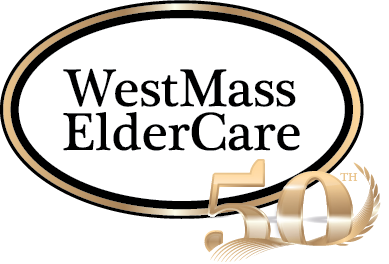When it comes to our health, we often focus on our physical well-being – what we eat, how we exercise, and maintaining a healthy weight. But it’s essential to recognize that taking care of our mental health is just as important. In fact, our mental and physical health are closely connected, with one influencing the other in many ways.
The first week of October is World Mental Illness Awareness Week, a time when we highlight the importance of our mental well-being. This is a reminder of the connection between our mental and physical health, encouraging us to embrace a holistic approach to wellness throughout the year.
The Connection Between Mental and Physical Health
1. Stress and Its Physical Effects
One of the most evident connections between mental and physical health is stress. When we’re stressed, our bodies produce hormones like cortisol. Over time, high cortisol levels can lead to physical health problems like high blood pressure, a weakened immune system, and digestive issues. This shows how closely our emotional state affects our physical well-being.
Stress is a part of life, but chronic stress can take a toll on both our mental and physical health. It’s important to find healthy ways to manage and reduce stress, such as through relaxation techniques like deep breathing exercises or mindfulness meditation.
2. The Power of Mind-Body Practices
Practices like mindfulness, meditation, and yoga can have positive effects on both our mental and physical health. These techniques promote relaxation and reduce stress, leading to better sleep, improved immune function, and a lower risk of chronic diseases. By nurturing our mental health, we can also support our physical health.
Mind-body practices are simple yet effective ways to promote overall well-being. Engaging in activities like meditation or yoga doesn’t require any special equipment or a significant time commitment. Even a few minutes of mindfulness exercises each day can help reduce stress and improve both mental and physical health.
Set aside time each day for mindfulness and meditation. These activities can reduce stress, increase self-awareness, and improve emotional well-being.
Mindfulness and meditation can be incorporated into your daily routine in simple ways. You can start by taking a few minutes each day to focus on your breath and clear your mind. Over time, this practice can help reduce stress and improve your overall mental and physical health.
3. The Gut-Brain Connection
Researchers have discovered a connection between our gut and our brain called the gut-brain axis. This connection reveals that our digestive health can significantly impact our mental well-being. An imbalanced gut can lead to mood disorders like depression and anxiety. Eating a balanced diet rich in fiber and probiotics can improve our mental state.
The gut-brain connection highlights the importance of maintaining a healthy diet for both our mental and physical well-being. Foods that are rich in fiber, such as fruits and vegetables, can help support a healthy gut microbiome. Additionally, incorporating probiotics into our diet, like yogurt or kefir, can further promote gut health, positively impacting our mood and overall wellness.
4. Exercise and Mental Health
Regular physical activity is not just about maintaining weight or fitness. Exercise releases endorphins, natural mood boosters. Being active can reduce symptoms of depression and anxiety, enhance cognitive function, and boost self-esteem. This shows how closely physical activity is linked to our mental well-being.
Exercise doesn’t have to be strenuous or time-consuming. Simple activities like walking, gardening, or dancing can be enjoyable ways to stay active and improve mental and physical health. Finding an activity you enjoy and making it a regular part of your routine can make a significant difference in your overall well-being.
Holistic Wellness in Practice
To embrace holistic wellness, prioritize your mental and physical health year-round, especially during Mental Illness Awareness Week. Here are some practical steps to achieve this balance:
1. Balanced Diet: Eat a diet rich in whole foods, fruits, vegetables, and lean proteins. Prioritizing gut health through proper nutrition can positively affect your mental state.
A balanced diet doesn’t have to be complicated. Focus on incorporating a variety of nutrient-rich foods into your meals. Try to limit processed foods and added sugars, as they can negatively affect both your gut and mental health. Instead, opt for whole, natural foods to support your overall well-being.
2. Regular Exercise: Include physical activity in your daily routine. Whether it’s a walk, yoga, or a gym workout, regular exercise is a powerful tool for maintaining mental and physical health.
Regular exercise doesn’t have to be intense or time-consuming. Even a short daily walk or a gentle yoga session can provide significant benefits for your mental and physical well-being. Find activities you enjoy and make them a regular part of your routine to promote overall wellness.
3. Seek Professional Help: Don’t hesitate to seek professional support if you’re struggling with mental health issues. Therapists, counselors, and psychiatrists can provide guidance and treatment to improve your mental well-being.
It’s essential to remember that seeking help for mental health concerns is a sign of strength, not weakness. Mental health professionals are trained to provide the support and guidance you need to navigate challenges, manage symptoms, and improve your overall well-being. Whether you’re dealing with stress, anxiety, depression, or other mental health issues, effective treatments and therapies are available.
If you are an older adult and feel you need help, but don’t know where to begin, contact WMEC’s Elder Mental Health Outreach Team (EMHOT) Care Manager. Our EMHOT Care Manager plays a vital role in addressing the unique mental health needs of older adults in our community by providing comprehensive support and assistance to older adults who may be struggling with various mental health challenges. Our EMHOT Team offers a compassionate and proactive approach by identifying at-risk individuals, conducting assessments, and helping older adults obtain services. They can provide crucial education to both older adults and their families about mental health issues, available resources, and coping strategies. Additionally, EMHOTs often collaborate with other healthcare providers, social services, and community organizations like Senior Centers to ensure seniors receive holistic care and support, ultimately enhancing the overall well-being and quality of life for our elderly population. Contact WMEC’s EMHOT Care Manager by calling 413-538-9020 or emailing info@wmeldercare.org.
4. Healthy Social Connections: Nurture your relationships with family and friends. A strong support system can provide emotional support and help you cope with life’s challenges.
Social connections play a crucial role in our mental and physical well-being. Building and maintaining positive relationships with friends and family can provide emotional support, reduce feelings of loneliness, and enhance our overall quality of life. Try to prioritize social interactions, even in our busy lives.
Conclusion
In our quest for holistic wellness, remember that mental and physical health are closely linked, especially during Mental Illness Awareness Week. Ignoring one can harm the other, while caring for both can lead to a more balanced and fulfilling life. By adopting practices that promote mental and physical well-being throughout the year, we can achieve genuine holistic wellness, enhancing our quality of life and enabling us to not just survive but thrive.
Mental Illness Awareness Week serves as a reminder of the significance of our mental well-being. It’s a time to reflect on the importance of seeking help when needed, supporting one another, and creating a culture of mental health awareness and acceptance. As we move forward, let’s carry with us the understanding of the close connection between mental and physical health, promoting a holistic approach to wellness for a healthier, happier future for all.


